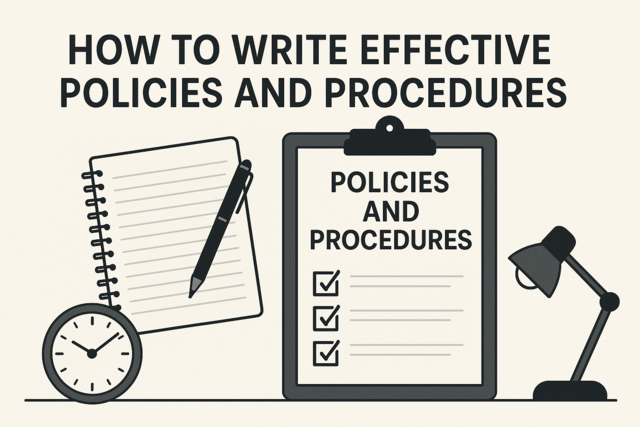In the United States, many women and families are suffering from overwork, one-parent families and too many social demands. There simply are not enough hours in the day to get everything done for the average worker. Virtual Assistants are primarily workers who come out of corporate America from the position of administrative support in some form or another. These are the detail workers who determine the quality and efficiency of their boss's final presentation and professional image. So, for these workers, the opportunity to shore up their time and energy to better spend in the interest of their families, while still retaining a profession with a professional salary is very inviting.
The immediate concern for most administrative staff who want to jump ship, is whether they will be able to handle the time demands and schedule adjustments. Another concern is whether a professional has the personal discipline necessary to jump ship and survive the change of pace, change of schedule, change of public image, and the merging of all of life into one continuum. Many people who go independent find they never stop working, because others refuse to see them as "working" while they are home or driving around in the daytime.
Certification of VAs
Any profession that moves to create a certification system does so to increase legitimacy, professional assurances to clients, and to increase the standard fees of those professionals. Virtual Assistants are no different in this sense and, in some areas of the world, certification and associations can help the individual to earn a better income. Today, VA services range from $15 to $100 per hour, depending on the area of specialty.
In a field that has become laissez faire, some VAs question the usefulness of such organizations. But among professionals who seek to strike out in their own VA business, the associations offer a reinforcement of their image as professionals. A professional association that sets the standards for an industry can arguably benefit the client because association members meet their standards. Equally, however, there is plenty of VA work in the marketplace, where the client is comfortable with the risk of an independent person or company. Oftentimes, this is because the independent VA comes to the client from a previous professional relationship, or the recommendation of another professional through a social network or association. In other words, the quality of the VA's work is already known to the client. For many upstarts, word of mouth and previous [not current] employers form the basis for building a client�le.
Local, National and International Research
Evaluating Your Own Professional Assets and Liabilities
For the novice, a little known fact is that no one starts a business in a field for which they have no experience. It is really practical sense that dictates you should know something about your profession before beginning the business, and significant experience, or unique corner of the market before opening your doors. After all, when you begin any business, your greatest assets are human talent and experience. The greatest liabilities are character flaws and any area of talent lack that may exist among your staff. In the beginning, you are your staff, so you do well to take an honest inventory of your personal assets and liabilities, as well as your professional ones.
Ask yourself these questions to get a clearer idea of what you bring to the marketplace that is going to cause clients to take notice:
- What is my honest competency level?
- Do I really enjoy assisting others?
- Am I prepared to do the work of my clients until my business grows to the point that I can hire others to do the work?
- Am I ready to put in the extra hours that it takes to upstart a new business?
- What can I handle with ease for my clients that most of my colleagues either cannot handle or do not want to handle?
- Am I willing to charge a premium price for that hard-to-find feature that I will offer my clients?
- Where do I make mistakes in my profession? Can I hire or contract an expert in this area to help me make sure I get this area professionally taken care of, so I don't stumble?
- Who can I count on to be part of my company's "brain trust" � professionals, counselors, and advisors who want to see me succeed?
Other Important Research
An independent Virtual Assistant business is one of the least expensive businesses to start, but without properly planning your resources, you will not make it to the "profit line."
Time, energy, equipment, professional contacts, and money are the resources you need to shore up and gather to prepare for your transition to a business owner. Let's cover each one briefly here, so you get a picture of what's important.
Time � The more say you have over your time, the better positioned you are to make the right business choices. For instance, I started my company when my son was a toddler and was able to make smart adaptations in our lives. I would not, however, even suggest that you try to start a business with an infant. Your child needs to be big enough to play in his own space while you take care of your business. If you start your business with a small child, remember he or she will still need quite a bit of interaction and attention from you in order to be happy and develop normally. Do not deprive them of that. Simply make room for them in what you do, but be sure to keep them as quiet as possible, or your professional image will be at risk. When your children are older, and if you are not a single mom, you will have more time freed up. Be sure to be flexible with your kids, too. After all, it is very likely that family time is one of your great motives for making the move to independent business owner. So, embrace it. Learn to implement a certain amount of family discipline in what you do each day and learn to steal moments of love here and there. This will also help you to enjoy your work more.
Energy � Your personal physical energy is something you will have to guard with diligence, and perhaps with a bit of an attitude. The first three years of my business, I was hard pressed to shore up my energy. Everyone required some of it, as did my business. I also had a hard time saying no to friends who wanted me to go here and do that. I learned to tell them they were welcome to our house, but we had too much to do to leave for the afternoon. I mention your energy, because I bottomed out on mine and it is worth a warning. If you have a husband, wife, children, or anyone in your life needing your attention, then be sure to put them at the top of the list, and the business in second place, with everyone -- and everything -- else after that. Your loved ones need you and want you, and you need your health. Your sleep directly affects your health and your energy and three to four hours a night for years is not enough. Don't wait until your medical doctor orders you to sleep, before you see the importance of your own reserves.
Equipment � You will want a minimum of a home computer and Internet service before starting your business. From there, you can build out your equipment as your business prospers. If you start your business with only your home computer, be prepared to rapidly invest in other equipment, such as a fax machine [or service], a scanner, a multi-line phone system [or service], a CD burner, and similar equipment.
Professional Contacts � Your contacts in the business community will be a major building block for you. You will eventually contact every person you ever knew in any type of business to at least let them know about your business. You will also use these contacts to build out your email list, and stay in regular contact with them.
Weathering the Financial Impact of Change
Your financial habits will be the first place you will see the impact of changing from an employee to a business owner. Some new business owners fail to see the importance of this impact, and they fail to adjust accordingly, putting their businesses at risk. Do not underestimate the impact of this shift in your finances.You have disconnected from your secure corporate job and do not have a regular paycheck to count on. Don't continue as if you do.
Weathering this impact on your finances will require you to stay focused in order to not fall on your face. Right focus, right decisions, good counsel from business owners who have taken this plunge into their own businesses are all important for you when you jump the corporate ship. Great resources include your local Chamber of Commerce and the SCORE office. SCORE [Service Corps of Retired Executives] is an organization of volunteers who advise local business people with everyday decisions they face in their upstart.
Nickels and Dimes
Times of financial downturns are excellent times to start your new business, because your personal risk is at its lowest. Such times can also find a large amount of people unemployed or laid off by their companies. The "make lemonade" attitude is best when your employer hands you lemons, or a pink slip.
Learn to pinch your nickels and your dimes, but be sure to do it in the right places. In your new business, you will never want to pinch in a place that will jeopardize your client's confidence in what you deliver, or your reputation as a reliable and trustworthy business person. Remember, the old adage, "You get what you pay for," is still a valid assertion, even when the economy is suffering, and even when business profits are not as fat as we would like them to be. Certain parts of your business, such as paying your employees, are best not pinched for the long-term health of your company. It is better to work 15 hour days with fewer people than to cut pay to the very workers that make your business engine run.
Fantasies and Pipe Dreams
Every new business owner must have a dream in order to start up a business, but the validity of that dream should rest on well researched information and not on your anger to "get out from under 'the man'". Many new would-be entrepreneurs start with the wrong image in their minds or with unrealistic expectations.
Persuasiveness and Your Ability to Sell Yourself
The importance of your persuasiveness and sales ability should not really surprise you in terms of making the transition from employee to business owner. I mention it in this section, however, because there are a fair number of executive assistants, administrative assistants, secretaries and other potential Virtual Assistants who simply abhor sales. They are the introverts who fill the rank and file of these professions.
Many administrative-type folks are simply happier handling papers than people.They are detail folks who can work with facts, numbers, and a variety of related information with accuracy and efficiency, but they would rather not talk to you � or in this case, your client.

























